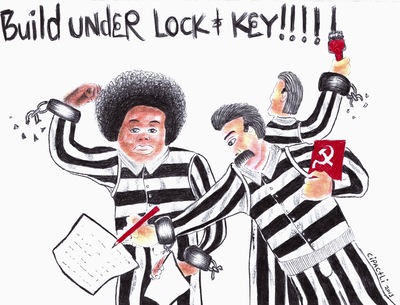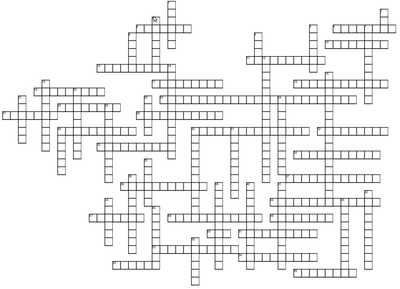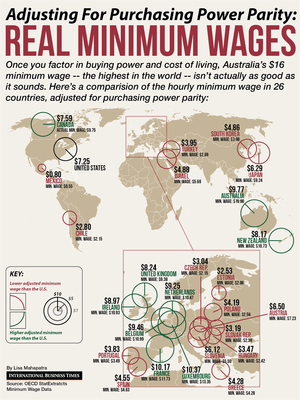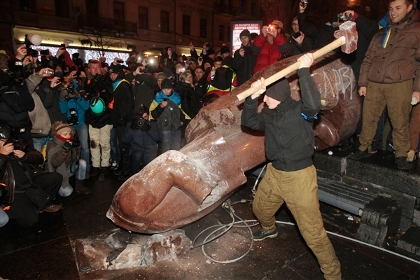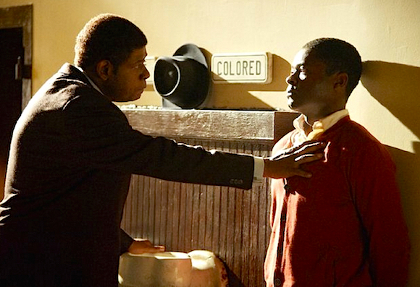
ULK Reader Survey Summary (updated)
As of 27 December 2013 we have received reader surveys back from 7.6% of our subscribers over the last 11 months. We began running the survey in Under Lock & Key requesting some basic persynal information and feedback on the content of ULK. Our goal was to assess who is reading ULK and what we can do to improve the content. The survey respondents overall represent a distribution of prisoners in line with the general prison population, with a few exceptions consistent with the focus of our work. In particular, we have significant over-representation from Texas, California and Pennsylvania among our readers. This means prisoners in those states are getting more input into the content of ULK. While we are no longer collecting survey responses, we welcome readers to send us your feedback on what you like and what you think could be improved as we are constantly looking to improve ULK.
Demographics Summary
Assuming that respondants to our reader survey represent the general readership of ULK, we evaluated the information on their demographics to see how this compares to the prison population overall in the United $tates. Below we discuss some differences between ULK readers and the general prison population.
Our average surveyed age is 40, but in 2011 only 40% of the prison population was over 40. This is not a surprising fact: people who are older and more educated behind the bars are turning to revolutionary politics. We could conclude that a longer time in prison leads people to become more politically advanced.
Relative to the U.$. Bureau of Justice Statistics (BJS) on “race” of prisoners, our survey respondents include a slight over-representation of New Afrikans and a significant underrepresentation of Latinos (16% compared to a 23% “Hispanic” population in 2011 overall). We are not surprised to have an undercount of Spanish-speaking folks responding to an english language survey, especially as Spanish-only migrants have been the fastest growing segment of the U.$. prison population in recent years. In addition, there was a significant percentage (8.3%) of people who identify as indigenous in our survey (including those who identified as half indigenous and half white). The BJS does not collect statistics on First Nations, so we must assume they are included in the remaining 5% that they do not class as Black, white or Hispanic. This indicates 8.3% is a relatively high percentage compared to the general prison population. As an organization fighting for the national liberation of oppressed nations, both internationally and within U.$. borders, we are not surprised that our readership in prison is even more skewed away from whites than the general prison population which is already only 34% white.
The latest study we found (2006) reports that 52% of prisoners are re-incarcerated. 61% of our respondents were incarcerated at least once before. This may be because those with a prison record get longer sentences and so are more likely to come into contact with ULK. They are also more likely to be older and active in prison, if our theory about age of prisoners is correct.
A very high percent (48%) of survey respondents are locked up in some form of solitary confinement (RHU, SHU, Control Units, Administrative Segregation, etc.). This is consistent with our experience that politically aware and active prisoners are targeted for isolation as punishment for their activism, and to try to isolate them from other prisoners to reduce their influence. Our research on control units indicates that less than 5% of prisoners are in long-term isolation in the United $tates.
Reader Suggestions
In response to our question about what people like best about ULK, the most popular response (22%) was “all of it!” We appreciate the enthusiasm of our readers. More specific responses that were popular included a lot of support for the unity demonstrated by ULK articles (11%) and the stories about other prisoner’s work and organizing (20%). There was also a lot of appreciation for state-specific and legal reporting (6%). Five percent of survey respondents liked best the core mission of ULK (which people described as Marxism-Leninism-Maoism, internationalism, reporting the truth, or just “the mission”). In addition, we saw responses in support of book reviews, culture, Spanish, country-wide and world news reporting, and general education.
In response to the question about what our readers would like to see more of in ULK, aside from the third of the respondents who thought it was just perfect as is or just requested more of ULK, one of the popular responses (9.5%) was a request for more theory, including information on the history of revolutionary movements and revolutionary heroes, quotes from communists, Maoist theory in general, and more in depth analysis from MIM(Prisons). Related to the request for theory, because strategy is developed from theory, and tactics come from strategic direction, we also had a lot of people asking for strategic direction in general (5.5%), and many asking for more campaigns and tactical campaign work they can do in their prisons (5%). This is a good reminder for our USW leaders as well as our ULK writers and editors that we should tie general prison news to campaign work when possible, and we should be looking for opportunities to initiate new campaigns that will be both educational and lead to potential tactical victories for the revolutionary movement.
A lot of people (9%) want to see more state-specific information (every prisoner wants more information on their own state). We can only increase the content about your state if you take action and write about what’s going on there. We rely on our readers for all of the state-specific reporting in ULK. And to really make good news, people need to be organizing so that we have campaigns, successes and failures to report on. So this is a response we hope comes from comrades who are sitting down now to write about their organizing efforts for the next issue.
There were also a lot of requests for resource lists (14.5%) or connections to other resources, and requests for legal information (12%). This is not part of our core mission for Under Lock & Key. We do run the Prisoners’ Legal Clinic to help fight key legal battles, such as the censorship of political material. But MIM(Prisons)’s core mission is to build the anti-imperialist prison movement, and so we prioritize communist political organizing. We do not have the labor or funding to provide general resource lists and legal assistance in addition to our core work. We know there are not many groups out there doing this, but resource lists and legal assistance will ultimately only provide band-aids to a fundamentally broken system of imperialism. And anti-imperialist organizing is even more scarce in prisons than legal and resource work.
Additional suggestions from readers for specific areas of expansion included: art, control units, current events, international news, poetry, security, Spanish, U.$. government reporting, and issues faced by the elderly, wimmin and LGBTQ prisoners. There were a wide range of topics suggested and the ULK staff will be discussing all of them as we strive to improve Under Lock & Key.
A few prisoners responded to some of the survey questions requesting that ULK be “less racial”, and “stop generalizing whites as oppressors” while one respondent liked “your hate against white people.” These responses represent a fundamental misunderstanding of the MIM(Prisons) political line around nation. We do not hate white people; we hate the imperialist system which kills, tortures and oppresses the majority of the world’s people for the wealth and enjoyment of the minority. We are scientists and we see clearly that in the United $tates the white nation is part of the minority of imperialist allies leading global oppression. But we also can see that the majority of the people in Russia before the revolution in 1917 who were oppressed were “white.” It is not skin color that determines people’s status as oppressor or oppressed. However, because of national oppression in the world today, we do see whole nations of people oppressed as a group by other nations. The white nation in the United $tates is an oppressor group, and there are many oppressed nations in the Third World. From an economic perspective, the other nations within U.$. borders are also part of the oppressors (New Afrikans, Chican@s, etc.), but these groups also face national oppression and so have some interest in anti-imperialism. It’s a complex system, that requires careful analysis and cannot be boiled down to race or hate against white people. We hope these readers will engage with us further for study to understand our position.
In this issue of Under Lock & Key we are featuring an extra four pages of content, which we hope our readers find to be educational and helpful in their organizing work. These four pages were funded by donators and the ULK Sustainers group, a group of United Struggle from Within members and supporters in prison who send in donations to expand ULK. To help fulfill the requests for more that was loud and clear in the survey results, join the ULK Sustainers group today.




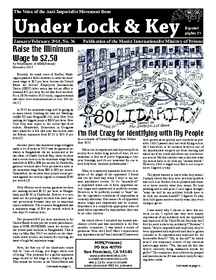
 Download printable PDF
Download printable PDF


